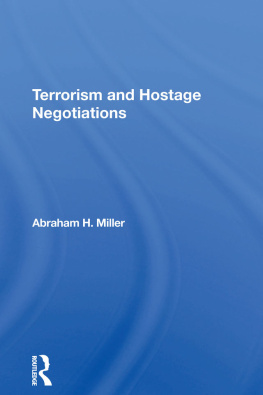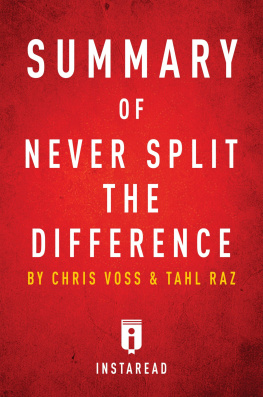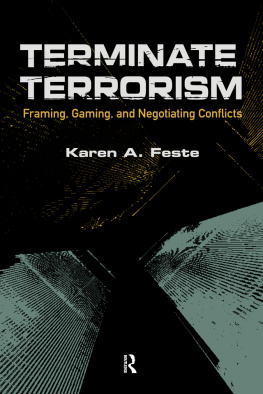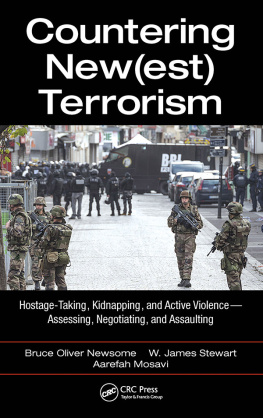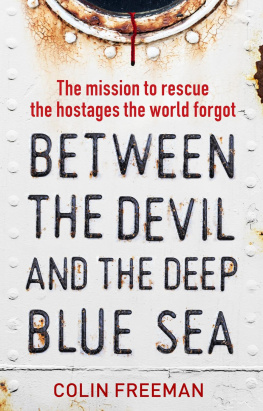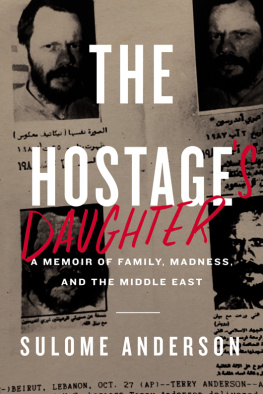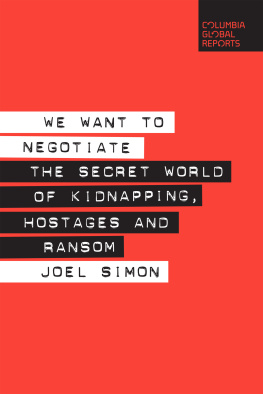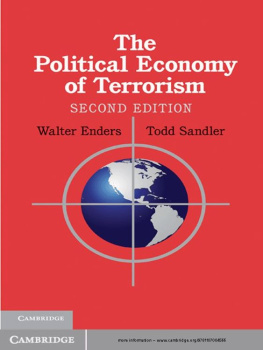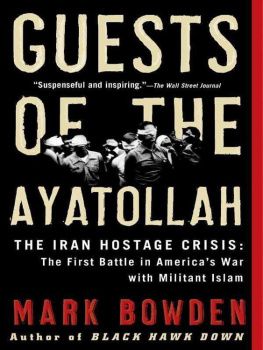Terrorism and Hostage Negotiations
Other Titles in This Series
Terrorism: Theory and Pvaatioe, edited by Yonah Alexander, David Carlton, and Paul Wilkinson
Self-Determination: National, Regional, and Global Dimensions, edited by Yonah Alexander and Robert A. Friedlander
International Terrorism; An Annotated Bibliography and Research Guide, Augustus R. Norton and Martin H. Greenberg
Victims of Terrorism, edited by Frank M. Ochberg and David Soskis
Terrorism and Global Security: The Nualear Threat, Louis Ren Beres
Also of Interest
Insurgency in the Modern World, edited by Bard E. O'Neill, William R. Heaton, and Donald J. Alberts
Available in both paperback and hardcover editions
Westview Special Studies in National and International Terrorism
Terrorism and Hostage Negotiations
Abraham H. Miller
How effective are the methods currently used to deal with hostage situations? This study attempts to answer that question by examining the ways in which terrorists manipulate the hostage/ barricade tacticone of the most formidable and frightening devices in their arsenaland by analyzing the response of law enforcement officers and policymakers to its use. Drawing on case materials and interviews with high-level decision makers, both in the United States and abroad, who are involved with domestic and international terrorist operations, Professor Miller analyzes the political and psychological motifs of hostage/barricade dramas. He then looks at terrorism, particularly political terrorism, within the broader theoretical context of the general study of political violence and the operational concerns of public decision makers and law enforcement personnel.
Abraham H. Miller is professor of political science at the University of Cincinnati. A specialist on political violence, in 1976 and 1977 he was a visiting fellow with the National Institute of Law Enforcement and Criminal Justice, U.S. Department of Justice.
Terrorism and Hostage Negotiations
Abraham H. Miller
First published 1980 by Westview Press, Inc.
Published 2019 by Routledge
52 Vanderbilt Avenue, New York, NY 10017
2 Park Square, Milton Park, Abingdon, Oxon OX14 4RN
Routledge is an imprint of the Taylor & Francis Group, an informa business
Copyright 1980 by Abraham H. Miller. All rights reserved except those retained by the Law Enforcement Assistance Administration, U.S. Department of Justice, under Guideline G 1432-2A (June 12, 1974), Appendix 1.
All rights reserved. No part of this book may be reprinted or reproduced or utilised in any form or by any electronic, mechanical, or other means, now known or hereafter invented, including photocopying and recording, or in any information storage or retrieval system, without permission in writing from the publishers.
Notice:
Product or corporate names may be trademarks or registered trademarks, and are used only for identification and explanation without intent to infringe.
Library of Congress Cataloging in Publication Data
Miller, Abraham H 1940
Terrorism and hostage negotiations.
(Westview special studies in national and international terrorism)
Bibliography: p.
Includes index.
1. Terrorism. 2. Hostage negotiations. I. Title. II. Series.
HV6431.M57 364.1'54 79-3288
ISBN 13: 978-0-367-28989-8 (hbk)
In the 1976-1977 academic year, I was a visiting fellow with the National Institute of Law Enforcement and Criminal Justice, Law Enforcement Assistance Administration, U.S. Department of Justice, Washington, D.C. I came to Washington with a background in the study of political violence. I had written about the black urban riots, Consequently, my incursion into the elusive and exciting topic of terrorism and hostage negotiations began with an academic mind-set formed by some of this earlier work. There was a problem. Hostages were being taken, a barricade situation would ensue and officials would have to decide if and how to negotiate. Across the broad international landscape, most such situations are acted out by political terrorists, but within the continental United States, such situations generally ensue in the course of interrupted felonies, where the motivation to seize hostages and the method of operation are quite different from those encountered in a political terrorist situation. All such episodes leave data. As there are often some regularities in similar kinds of human behavior, even under diverse circumstances, part of the explanation of how to deal with such situations could perhaps be ferreted out from the kinds of data entwined in these episodes.
My inclination was to perceive the problem of what to do in response to a hostage situation through the intellectual prism wrought by years of training as a social scientist. Each event could be taken as a series of data pieces, broken apart into a number of critical variables and dissected. The field of variables could then be aggregated across events, terrorist groups, and modes of responses of social control agents to present a probabilistic set of statements about what responses work under what circumstances.
I still have a lot of confidence in that methodology and believe the study of terrorism both for theoretical and operational concerns would be greatly enriched by a commitment of resources to this type of undertaking. It soon became apparent, however, that such a project went far beyond the time and resources available to me as an individual researcher within the context of the fellowship project. Two additional things were also relevant to the ultimate conceptualization of how the research was conducted. One was that Edward Mickolus, of the Central Intelligence Agency, had already undertaken this type of approach to the study of terrorism. Although we possessed some critical differences in orientation and perspective, I saw no point in duplicating Mickolus' work. Also, Mickolus, through the good offices of the Inter-University Consortium for Political Research, had made available to me the first batch of his machine-readable data. Despite insightful conceptualization, assiduous work, and coverage of a broad range of sources, Mickolus' file, "Project Iterate," at least in its initial form, contained too much missing data to provide the analytical coverage that was intrinsic to my own investigations. The file did contain excellent descriptive information and enriched my research, and I am grateful for having had access to it. However, its use was largely restricted, because of the missing data problems, to rather general types of descriptions. Analyses of specific groups were quite limited for this reason. A greater commitment of resources and access to the foreign language press would have greatly enhanced the utility inherent in the Mickolus project. Hopefully, the utility of Mickolus' design will achieve sufficient recognition at some point to obtain the resources it richly deserves.
There was yet a second reason for the change in orientation toward the research. This resulted from learning that the police had acquired a great deal of information about hostage situations and had developed some special programs to deal with them. Although virtually all of the experience the police had acquired had been the result of encounters with ordinary felons and not with political terrorists, the resulting methods were ones that would ultimately be used in situations that required negotiations with political terrorists. How effective were these methods? What reasonable implications could be deduced from them for political terrorist situations? As the answers to these questions were not generally known or even pursued on a national basis, it seemed that this would be a more appropriate course of inquiry. Moreover, by further pursuing these questions in the international context, an even broader frame of reference could be created against which the questions could be entertained.


